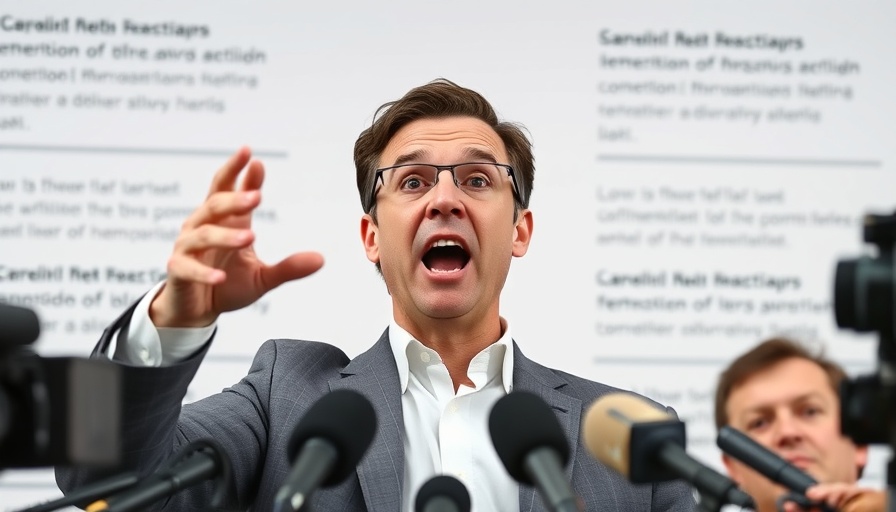
ANC Budget Briefing: A Gateway to Understanding South Africa's Fiscal Future
As South Africa braces for a critical economic year, ANC Secretary General Fikile Mbalula stood firm before the media, outlining the party’s perspective on the recently announced 2025 National Budget. Central to his argument is the tussle between the ANC and opposition parties—particularly the Democratic Alliance (DA)—over the proposed VAT increase and its implications for fiscal policy and social reform.
The Tension Between Transformation and Fiscal Responsibility
Mbalula’s briefing highlighted the ANC’s commitment to transformation through the 2025 Budget, which proposes a 0.5% VAT increase. He accused the DA of using economic concerns as a facade to undermine policies aimed at addressing deep-rooted inequities, stating that opposition to the budget was, in fact, a move to protect what he termed “white monopoly capital.” These sentiments unfold against the backdrop of potential political realignment ahead of the upcoming 2024 general elections, where critical issues such as state capture and anti-corruption measures take center stage.
Political Dynamics in a Government of National Unity
The landscape of South Africa’s coalition government reflects a fragile political balance. Mbalula articulated concerns about the DA's motivations, positing that any rejection of the budget stems not from genuine fiscal oversight but rather from a desire to regain political ground within the Government of National Unity (GNU). The critiques from opposition parties—including the Economic Freedom Fighters (EFF) and uMkhonto weSizwe (MK) party—serve to further complicate this dynamic, as each seeks to leverage their stance on the budget to galvanize support among their voter bases.
The Broader Implications of Economic Policy
The proposed budget does more than adjust tax rates; it sets the tone for addressing critical issues such as youth unemployment, income inequality, and public sector reform. Critics of the VAT increase argue that it disproportionately affects the lower-income populations—an irony not lost on those advocating for changes in labor laws and social grants. These aspects raise questions about service delivery and the efficacy of current government policies, challenging the ANC to maintain its narrative that the budget is a pathway to shared prosperity.
Opposing Views and the Path Forward
The DA plans to strategically oppose the budget, claiming it is detrimental to South Africa's economic future. Leaders like John Steenhuisen assert that the ANC is out of touch with the economic realities faced by citizens. As political parties gear up for the elections, the contentious nature of these budget discussions signals a broader struggle to define the nation’s direction. Economic policy debates become platforms for larger ideological battles over state intervention and reform.
Voter Sentiment and Future Predictions
Polls suggest that voter turnout could play a pivotal role in shaping future government coalitions. Many South Africans express frustration with both the ANC and DA, indicating a potential shift in allegiance toward more radical solutions offered by emerging parties. The atmosphere leading into the 2024 elections could see increased demands for electoral reforms aimed at improving transparency and governance, especially spotlighting issues surrounding budget allocations and the management of public debt.
Conclusion: Responsibility and Accountability in Governance
Mbalula’s engagement with the media on the 2025 National Budget reflects the complexities of governance in a diversified democracy. As South Africa navigates these political currents, it is vital for citizens to engage actively with the policies that affect their daily lives. Understanding the budget is not merely an exercise in finance but a critical inquiry into the values and priorities that will shape the nation’s future. As these debates heat up, the question remains: which party will ultimately fulfill the promise of transformation for all South Africans?
As we approach the crucial elections ahead, individuals are encouraged to educate themselves on the implications of economic policies and the stances of various political parties. Engagement in civic dialogues about state accountability and reforms might be the key to fostering a more equitable South Africa.
 Add Row
Add Row  Add
Add 




Write A Comment